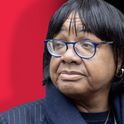In recent months, two British groups representing moderate or liberal Islam—British Muslims for Secular Democracy and the Quilliam Foundation—have been launched to considerable media fanfare. The Quilliam Foundation in particular has caught the eye. Partly because it is the work of two ex-Islamists—Mohammed "Ed" Husain and Maajid Nawaz, deputy director and director respectively—Quilliam is being seen as a major new development in the battle against extremist Islam in Britain.
Quilliam's profile has been boosted by the success of The Islamist (Penguin), Husain's book about his years in London as a member of the radical Islamist group Hizb ut-Tahrir. The Islamist was one of the publishing sensations of 2007, selling over 50,000 copies. The paperback comes garlanded with praise from some of Britain's leading opinion-formers. And the book's influence has reached into government. The BBC reported that "one government official emailed scores of colleagues inside Whitehall… instructing them to read it." Given that Quilliam's agenda has been substantially shaped by Ed Husain, it is worth taking a closer look at the account of political Islam in Britain found in The Islamist.
***
Husain's active involvement in Islamism—the modern, politicised form of Islam which seeks to impose an Islamic state and sharia law—seems to have begun in 1990 and lasted roughly a decade and a half. His early devotion to an elderly Bengali Sufi mystic whom his Indian Muslim father had introduced him to, and whom he called "Grandpa," made him eager to learn more about Islam at school.
"The first book I read about Islam in English was Islam: Beliefs and Teachings by Ghulam Sarwar," Husain writes. Sarwar was "the brains behind the… Muslim Educational Trust (MET). What seemed like an innocuous body was, in fact, an organisation with an agenda… It all seemed harmless but the personnel all belonged to Jamat-e-Islami [a Pakistan-based Islamist party] front organisations in Britain."
Husain goes on to catalogue other examples of this "crypto-Islamism." In fact, virtually every Muslim organisation is characterised as a front for Islamism: Islamic societies on campuses; Young Muslims Organisation UK; the Muslim Association of Britain; the Muslim Council of Britain; the East London Mosque and even the Respect party. "Nearly every Muslim… body, mosque and publishing house was under Islamist control," Husain writes, "and they [the Islamists] began to be seen as mainstream."
Front organisations are certainly used by militant Islamist groups. But Husain—clearly scarred by his time in HT, which, he states, "had given me a particular dislike for all organisational forms of Islam"—seems to find it impossible to conceive of mainstream Muslim organisations that are not crypto-Islamist. According to Husain, the choice facing today's Muslims is simple: Islamism (equated with extremism), or non-political, individual piety. This non-political Islam, to which "the majority of the world's Muslims still adhere," is "deeply personal, highly spiritual and Sufi-influenced." The Quilliam website says Muslims should become politically engaged and integrated as "citizens, not as a faith community." Husain's ideas have, unsurprisingly, resonated with a secular political establishment that is suspicious of religious politics. But Husain surely misses a crucial distinction between "Islamism" and "Muslim politics."
In his Global Political Islam (Routledge), Peter Mandaville defines Islamism as a form of Muslim politics concerned with promoting political behaviour embedded in Islamic principles, usually directed at creating an Islamic state. "Muslim politics," on the other hand, is "a more inclusive formulation… that does not pursue the establishment of formal Islamic political systems." Islamism is not, in other words, the sum of Muslim political possibilities.
By these definitions, all mainstream organisations in Britain continue to pursue forms of Muslim politics because that is what many, if not most, Muslims in Britain want. They want a politics informed in some way by Islamic values, such as a strong emphasis on social responsibility, but which is also content to work within established democratic systems and build partnerships with other faith and secular groups, and which eschews not only violence but also shibboleths such as sharia or an Islamic state.
Because Husain believes that any form of Muslim politics must be crypto-Islamist, he finds it difficult to identify a form of moderate Islam that might differ from his own, apolitical, idea. Seeing crypto-Islamists under every bed, he is, ironically, reminiscent of those Muslims who see Jewish conspiracies everywhere. It is a paranoia shared by some of his supporters. In the Spectator in March 2008, Charles Moore writes of "phoney Muslim moderates" such as Tariq Ramadan who is "lionised at Oxford while considered so extreme in France that he found it easier to leave and work here." Moore never considers the possibility that Ramadan is seen as extreme in France because he refuses to sign up to that country's insistence that religion should be a political no-go area.
Jack Straw was closer to the truth when he wrote in Prospect ("Islam in Europe," October 2002) that British Muslims wanted a political party akin to the Christian Democrats in Germany. Since Husain is suspicious of any form of Muslim political organisation, he would presumably rule this out too. However, this is where "reform" in Britain's Muslim communities is heading. This is not to say that a British "Muslim Democrats" party will necessarily emerge, merely that the desire for a "moderate" Muslim politics is certainly there and could take this form. To write this off as "crypto-Islamism" simply corroborates the Islamists' argument that western elites are implacably hostile to all Muslim political aspirations.
***

Husain's attempts to reconcile such disparate ideological strands leads him to make several injudicious claims. He declares, for instance, that Islamists are "all at one with Wahhabis in creed" because they are both "literalist." This is not true; most Islamists are literalist in some aspects of their interpretation of sources, but in others, especially political matters, they exercise free interpretation (ijtihad). The most influential Islamist thinkers—Mawdudi, al-Banna, Qutb—all advocated an "interpretative" approach to the sources, and did so because their various shades of Islamism were shaped by encounters with modernity and the modern state. These Islamists take as axiomatic the modern belief in historical progress. Wahhabism, on the other hand, developed long before the modern state appeared in the Muslim world. It is a backward-looking, revivalist movement that sought to arrest the decline of the Muslims of Arabia by escaping history.
Husain takes the fact that Qutb acknowledged Mawdudi as an influence to mean that the two men's ideas were basically the same. Yet although Qutb borrowed some of Mawdudi's ideas, he developed them in ways that reflected the very different circumstances in which the two men wrote. In particular, by the time Qutb wrote his infamous book Milestones in an Egyptian jail, his earlier attempts to reconcile the individual with the ethical obligations to the community (which he took to be Islam's imperative) had given way to a totalitarian vision of the primacy of the community. An openness to democracy was replaced by "vanguardist" militancy.
By contrast, Mawdudi's principal concern was to "Islamicise" society such that it would be ready to accept an Islamic state if and when it came. Firmly rooted within the Indian Muslim establishment, Mawdudi could afford to take the long view, and his gradualism was accompanied by a much stronger emphasis on democratic transformation of the existing order. He understood that the Islamic state could not just be imposed from above. This commitment to change through democratic choice is in marked contrast to groups such as HT who see democracy as haram (forbidden) in Islam. And Mawdudi's emphasis on bottom-up Islamicisation meant that, unlike Qutb, he could not countenance the use of violence. The chasm between Mawdudi and Qutb is as wide as that between Fabianism and Bolshevism.
These and other ideological differences are significant enough to warrant speaking of "Islamisms," in the plural, but Husain elides them into a singular global movement encompassing political parties such as Jamat-e-Islami (JI) and its offshoots such as Young Muslims Organisation UK, the Muslim Brotherhood and its affiliates (Hamas, Muslim Association of Britain), HT and al-Muhajiroun, the Taliban and, beyond them, militant jihadist organisations like al Qaeda. For Husain, Muslim politics/Islamism leads inexorably to extremism and ultimately to terrorism.
To illustrate how this "escalator" works, Husain cites cases like Babar Ahmed, "who had once been a member of the youth wing of the Islamic Society of Britain," and is now "set to be extradited to the US on terrorism charges." Similarly, the Muslim Council of Britain is tainted with extremism by the past links of its secretary-general, Abdul Bari, to JI. Yet one can not always infer the characteristics of a group from the behaviour of individuals that belong to it. Take the case of Tablighi Jamaat (TJ), a proselytising group set up in India in 1927 that has recently attracted attention in Britain over its plans to build a vast mosque in east London. Last January, 12 TJ members were arrested in Barcelona on suspicion of planning a suicide bomb attack. The judge investigating the plot said of TJ that it promotes the "indiscriminate" use of violence to attain political ends.
Shortly afterwards I was in a three-way correspondence with a journalist covering the story and a former intelligence analyst for the British government. The journalist told us he was confused by the judge's comments; he had believed that TJ was an evangelical organisation and not very "political." We reassured him that he was correct. The founder of TJ, Muhammad Ilyas, did express admiration for Mawdudi, and believed that TJ complemented the work of JI by helping to "Islamicise" society. But the two organisations moved in completely different directions. Mawdudi's Islamism advocates political engagement, while the traditionalist TJ reduces Islam to the simple performance of six ritualistic acts. One is rooted in the urban middle class, the other directed at the uneducated peasants of rural south Asia. TJ's formulaic approach is part of its appeal; it is probably the largest Muslim group in the world, with membership running into the millions. Even though a few of these might go on to become radicalised, the vast majority remain steadfastly apolitical. The Spanish judge believed that because TJ members were found to be preparing a terrorist act, TJ must have prepared them for that end. But, as the intelligence analyst remarked, this would be like suggesting that the RSPCA is a militant organisation just because it has a few animal rights extremists among its members.
Moreover, such invocations of guilt by association take no account of the historical development of groups like the Muslim Brotherhood in Egypt, which is a very different organisation now to what it was in Qutb's time. Qutb's influence nearly destroyed the MB by giving the Egyptian state a reason to clamp down on its activities, and its rehabilitation has involved the disavowal of violence and the adoption of a democratic, parliamentary strategy. A new generation of leaders has reoriented the MB towards the so-called "Muslim democracy" approach adopted by Turkey's Justice and Development (AK) party.
Husain believes that Islamist organisations simply cannot change. The Islamist tacitly suggests, for example, that the MB's "real" identity as an "extremist" organisation lurks behind the "cover" of its recent activities. (Such attitudes also seem to inform the current constitutional coup d'état led by Turkey's secular elite against AK. )
***
Much of the value of Husain's memoir lies in the fact that it is an insider's account. It tells us interesting things about the way HT works, but it also risks distorting the picture of the world outside. Everything revolves around "the movement"; the book has no "ordinary" Muslim voices in it, apart from those of "Grandpa" and Husain's father. The Muslim "masses" are presented as gullible and easily-led—as "unthinking sheep." This is an unwitting testimony to the insularity of Islamists.
Some people find it hard to accept that change could occur without them. The final chapter of The Islamist, entitled "Return to England," suggests that nothing has changed within Muslim communities in the decade and a half since Husain began his Islamist career. He returns to the East London mosque "to see if the management had moved away from Islamism… Sadly, I was disappointed." Islamist ideas about global jihad, the Islamic state and the primacy of the ummah are still "accepted as normal and legitimate." It is as if British Muslims are stuck in the 1990s.
There is a problem of Muslim extremism in Britain. But Husain's account sheds little useful light on it. He has experienced little of the changes underway in British Muslim communities in the past decade. For example, he describes the Islamic Society of Britain (ISB)—which he got to know after leaving HT—as an Islamist organisation (although it was also the vehicle through which he encountered moderate scholars like Hamza Yusuf). In fact, the ISB is one of a large number of organisations and individuals that have been contesting older Islamist ideas for many years. And the Young Muslims Organisation UK, also condemned by Husain, participates in the Radical Middle Way, a government-sponsored initiative that has been challenging extremist ideologies. Another participant in the Radical Middle Way is Emel, a lifestyle magazine for upwardly mobile Muslims that takes integration in Britain for granted. Its editor, Sarah Joseph, was a member of ISB. As for Inayat Bunglawala, a leading spokesman of the MCB who is dismissed by Husain as an Islamist, the journey he has undertaken away from Islamism has been well documented in articles and interviews. He has publicly acknowledged, for instance, that Muslims were wrong to demand the banning of Rushdie's The Satanic Verses.
All these transformations are part of a deeper grassroots shift that signals what Asef Bayat, the director of the International Institute for the Study of Islam in the Modern World, calls "post-Islamism." He characterises it as "an attempt to turn the underlying principles of Islamism on their head by emphasising rights instead of duties, plurality in place of a single, authoritative voice, historicity rather than fixed scriptures and the future instead of the past."
Post-Islamism also encompasses what the French sociologist Amel Boubekeur calls "cool Islam." Boubekeur has documented changes in the way young European Muslims relate to Islam after the "failure of political Islamism." A "new Muslim elite," she says, "is bringing a new urban Muslim culture… Islamic goods and services promote an ethical point of view resulting from an Islamic faith." This is reflected in products such as the Dawah Wear jogging suit, or an adjustable velcro hijab for the sporty Muslim woman. This Muslim consumerism has its counterpart in a micro-politics that invites partnerships with non-Muslims and eschews the centralised hierarchy and grand ambitions of traditional Islamist politics. The Islamist fails to register any of these developments.
***
Many of Britain's leading Muslims have been hostile towards the Quilliam Foundation. Even leading liberals have been lukewarm. This has led some to speculate that there is a "politics of envy" at work, based on resentment at the attention bestowed on a Johnny-come-lately (see David Goodhart's response to Ziauddin Sardar's Guardian attack on Quilliam at First Drafts, Prospect's blog).
There may be some truth to this, but Muslim scepticism has more solid grounds. Although some arguments deployed against Quilliam are a little perverse, they have been motivated in part by the manner in which Husain and Quilliam have positioned themselves at the forefront of a search for a moderate British Islam while ignoring the efforts of others who have been doing just that for some time now.
Many have also objected to Husain's advocacy of an apolitical Sufism. Husain and Quilliam seem to be at odds with the desire among many Muslims for a "moderate" Muslim politics. In any case, Sufism is not always as apolitical or "progressive" as Husain believes. He does not mention that the three main Islamist ideologues—al-Banna, Mawdudi and Qutb—all had strong Sufi connections. Nor does he acknowledge that the world's largest Sufi order, the Naqshbandi, is very orthodox and conservative.
The arrival of Quilliam should be welcomed, but it is only one of the many strands of reformism at work within British Islam. In the two years I spent talking to young Muslims while researching my book Young British Muslim Voices, I encountered many new ideas and possibilities at grassroots level. These should be carefully nurtured—Quilliam is by no means the only player in this game.
There is plenty of room for groups that advocate non-political or secular forms of Islam. But there should also be room for those who argue for other kinds of Muslim politics, and even Islamists who play by the democratic rules—Islamist political aspirations are not illegal in a liberal society; what matters is the means used to pursue them. Quilliam must take account of these other forces. I hope it can be open-minded enough to acknowledge criticism and start to accommodate other points of view.
Ed Husain will respond in the next issue of Prospect











